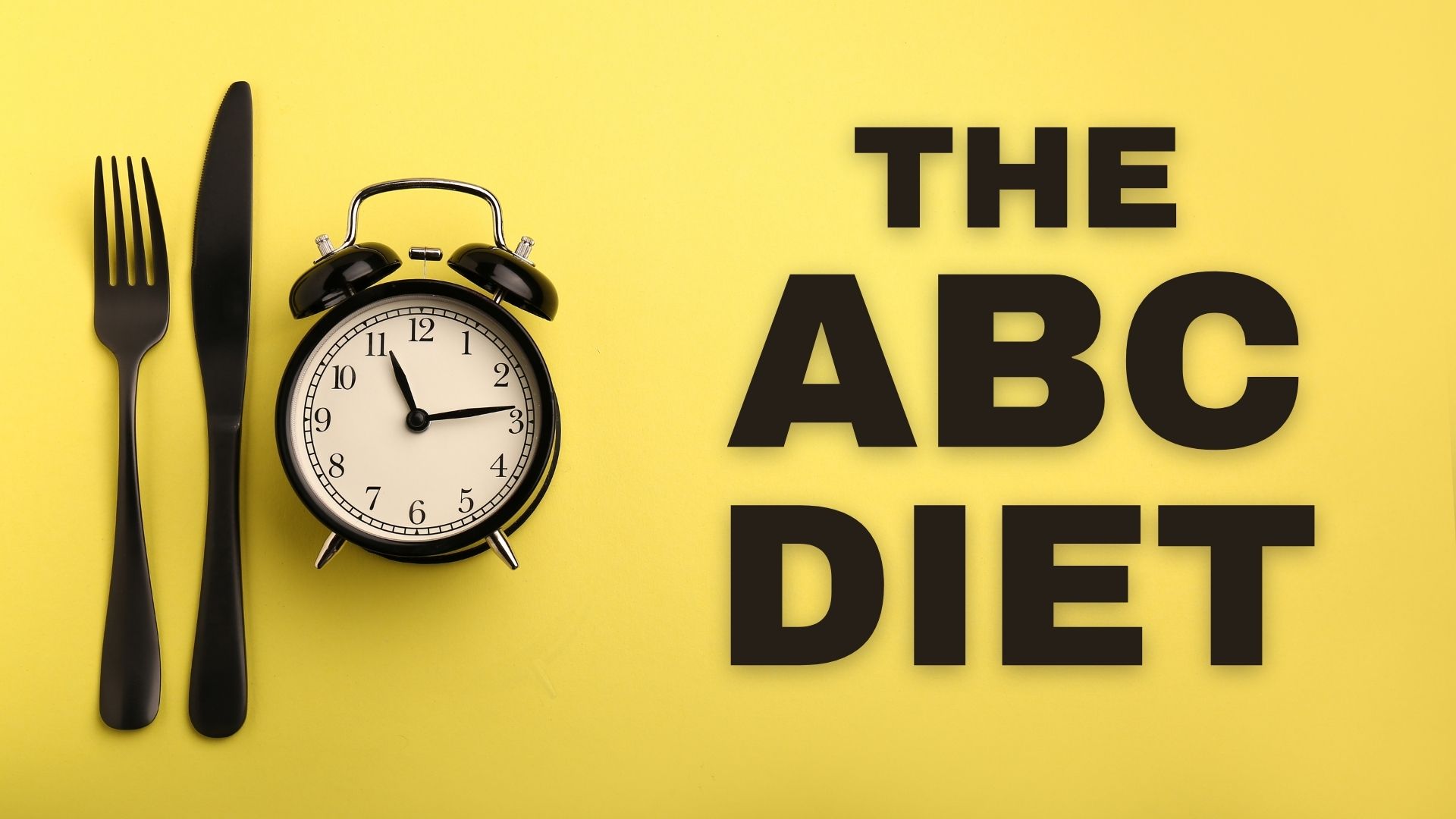
Whole30: How to Reset Your Eating Habits in 30 Days
Whole30 is a 30-day nutritional reset that eliminates potentially inflammatory foods like added sugars, grains, dairy, and legumes from your diet. It emphasizes whole, unprocessed foods like fruits, vegetables, lean proteins, and healthy fats. It is designed to help you identify food sensitivities, improve digestion, and reset your body’s natural balance. While the Whole30 diet can be a great tool for weight loss, it’s more about non-scale victories like increased energy, improved sleep, and better digestion.
What is Whole30 and How Can It Change Your Life?
Whole30 is a 30-day dietary program designed to help individuals make lasting changes to their eating habits. It is based on the premise that certain food groups, such as sugar, dairy, and grains, can cause inflammation and other health problems if consumed in excess. By eliminating these food groups for 30 days and focusing on real, whole foods, Whole30 participants can experience a range of positive health benefits.
The Whole30 program is divided into three distinct phases. During the first 10 days, participants focus on removing all unhealthy food groups from their diet and replacing them with whole foods. This includes eliminating all added sugars, grains, dairy, legumes, alcohol, and processed foods. For the next 10 days, participants focus on reintroducing certain food groups in moderation and evaluating how their body responds. Finally, the last 10 days are focused on creating a balanced diet consisting of real, whole foods.
The benefits of Whole30 are numerous. Firstly, it can help participants develop a better understanding of their body’s response to certain foods. This can enable them to make more informed food choices in the future. Additionally, Whole30 can help participants lose weight and improve their overall health. It can also reduce inflammation, improve digestion, and increase energy levels.
Overall, Whole30 is an effective program for making lasting changes to one’s diet. By eliminating certain food groups for 30 days and focusing on real, whole foods, participants can experience a range of positive health benefits. By understanding how their body responds to certain foods, they can make more informed food choices in the future.
What to Expect When Starting a Whole30 Diet
Starting a Whole30 Diet can be a daunting task, especially if you have never done an elimination diet before. However, with the right preparation and knowledge, you will be well on your way to improved health and wellness.
First and foremost, you should understand the purpose of the Whole30 Diet and what it entails. The Whole30 Diet is an elimination diet designed to help you reset your body, reduce inflammation, and improve your overall health. During the 30 days, you will remove certain food groups from your diet and focus on eating whole, unprocessed foods. These food groups include dairy, grains, alcohol, added sugar, legumes, and processed foods. The goal is to reintroduce these food groups after the 30 days, and to observe how your body reacts to the reintroduction.
Once you understand the basics of the Whole30 Diet, it’s time to begin preparing. Start by stocking your kitchen with Whole30-approved foods such as fruits, vegetables, grass-fed meats, nuts, and seeds. You should also plan out your meals and snacks for the week, and create a grocery list based on your recipes. Additionally, it is important to read labels and avoid any processed foods or added sugars.
During the 30 days, it is important to be mindful of your eating habits and to stay consistent with your meals. You should also drink plenty of water throughout the day and try to incorporate some form of physical activity into your daily routine. Additionally, you may experience some side effects during the first few days of the diet, such as headaches, fatigue, and cravings. If this occurs, try to stay positive and focus on the long-term benefits of the diet.
Lastly, it is important to remember that the Whole30 Diet is not a quick fix. It requires dedication, consistency, and patience to achieve the desired results. With the right mindset and preparation, you can complete the 30-day period and start on the path to improved health and wellness.
10 Reasons to Try the Whole30 Diet
- Improved Digestion: The Whole30 Diet requires that certain foods be eliminated from your diets, such as grains, dairy, legumes, and added sugars, which can help improve your digestion.
- Increased Energy Levels: By eliminating processed and unhealthy foods, you are likely to experience more energy throughout the day.
- Weight Loss: The Whole30 Diet is focused on eating whole foods that are nutrient-dense and low in calories, which can lead to weight loss.
- Improved Sleep: By eliminating unhealthy and processed foods, you can improve your sleep quality.
- Improved Mood: Eating healthier foods can help improve your mood and reduce stress levels.
- Improved Skin Quality: Eating nutrient-dense foods can help improve your skin quality and reduce breakouts.
- Improved Heart Health: Eating a whole-food diet can reduce your risk of heart disease.
- Improved Cognitive Function: Eating whole foods can help improve your mental clarity and focus.
- Reduced Inflammation: The Whole30 Diet eliminates processed and unhealthy foods, which can help reduce inflammation in the body.
- Increased Nutrient Intake: Eating whole foods can help increase your nutrient intake and provide your body with the essential vitamins and minerals it needs to function at its best.
The Benefits of Eating Whole Foods on the Whole
30 Diet The Whole30 diet is a unique and popular diet that promotes the consumption of whole, unprocessed foods, while simultaneously eliminating sugar, alcohol, grains, legumes, and dairy. As a result, the diet has numerous benefits that can be seen in terms of physical and mental health.
One of the primary benefits of the Whole30 diet is that it encourages the consumption of whole, unprocessed foods. These foods are nutrient-dense and provide a wide range of vitamins, minerals, and other essential nutrients that are vital for maintaining health. Whole foods also contain fewer calories than processed options, making it an ideal choice for those looking to lose weight. Furthermore, whole foods are generally more filling than processed options, which can help to reduce hunger and cravings.
In addition to encouraging the consumption of whole foods, the Whole30 diet eliminates unhealthy ingredients such as added sugars, alcohol, grains, legumes, and dairy. Eliminating these foods from the diet can help to improve overall health. For example, added sugars have been linked to an increased risk of obesity, type 2 diabetes, and heart disease. Similarly, consuming too much alcohol has been linked to an increased risk of certain cancers, liver disease, and depression. By eliminating these unhealthy ingredients, the Whole30 diet can help to reduce the risk of developing these conditions.
Finally, the Whole30 diet can also have a positive impact on mental health. The diet encourages the consumption of nutrient-dense whole foods, which can help to boost mood and energy levels. It also eliminates unhealthy ingredients such as added sugars and alcohol, which can have a negative impact on mental health. As a result, following the Whole30 diet can have a positive impact on mental wellbeing.
In conclusion, the Whole30 diet has numerous benefits that can be seen in terms of physical and mental health. By encouraging the consumption of nutrient-dense whole foods and eliminating unhealthy ingredients such as added sugars, alcohol, grains, legumes, and dairy, the diet can help to improve overall health and wellbeing.
How to Get Started with the Whole30 Diet
Getting started with the Whole30 diet is a great way to make dramatic dietary changes that can lead to improved health and wellness. This eating plan requires dedication and commitment to see results, but the rewards can be well worth the effort. To get started, here are some helpful tips.
- Educate Yourself: Before beginning the Whole30 diet, it is important to have a thorough understanding of the program and its guidelines. Read through the official website and learn about the benefits of this type of diet, as well as any potential risks.
- Meal Planning: Create a meal plan for the duration of the Whole30 program. Include nutritious, whole-foods that fall within the guidelines. Be sure to include plenty of fruits, vegetables, and lean proteins.
- Grocery Shopping: Take a shopping list with you to ensure you only buy items that are approved for the Whole30 diet. It is important to avoid processed, refined, and artificial foods.
- Prepare and Store: Once you have the necessary items, prepare your meals and snacks for the week. Pre-packaged meals are allowed, as long as they meet the Whole30 guidelines. Store them in the refrigerator or freezer.
- Stay Motivated: Sticking to a strict diet can be difficult and it is easy to get discouraged. Find ways to stay motivated and remind yourself why you are doing this. Celebrate small victories and remind yourself that change takes time.
With a bit of dedication and determination, the Whole30 diet can be a successful and rewarding journey. Eating whole, unprocessed foods can lead to improved health and wellness and can help you reach your goals.
What to Eat and Avoid on the Whole30 Diet
What to Eat on the Whole30 Diet
The Whole30 diet is a popular 30-day program that focuses on eliminating certain food groups and replacing them with healthier, nutrient-dense options. The goal of this diet is to eliminate any foods that may be contributing to cravings, unhealthy habits, and physical or mental health issues.
Whole30 followers should focus on eating whole, unprocessed foods such as vegetables, fruits, meats, fish, eggs, nuts, and seeds. Additionally, it’s important to choose high-quality proteins, healthy fats, and carbohydrates such as sweet potatoes, quinoa, and brown rice. Dairy is not allowed on the Whole30 diet, but some followers may choose to eat ghee or clarified butter.
The Whole30 diet encourages the consumption of a variety of plant-based proteins and healthy fats. This includes legumes, tofu, tempeh, nuts, seeds, and avocados. Foods like olives, olive oil, coconut oil, and nut butters are also allowed.
What to Avoid on the Whole30 Diet
The Whole30 diet restricts the consumption of certain food groups and ingredients. Any processed foods, including packaged snacks, meal replacements, and convenience foods should be avoided. Additionally, sugar, honey, maple syrup, agave, artificial sweeteners, and processed sweeteners are all off-limits.
Grains such as wheat, barley, oats, corn, and rice are also not allowed. Legumes like beans, chickpeas, lentils, and peanuts should be avoided. Dairy products, including milk, cheese, yogurt, and ice cream are not allowed.
Alcoholic beverages, vinegar, and MSG should also be avoided. Finally, it is important to avoid any foods that contain ingredients that are not on the Whole30 approved list.
In conclusion, the Whole30 diet is a popular 30-day program that focuses on eliminating certain food groups and replacing them with healthier, nutrient-dense options. Whole30 followers should focus on eating whole, unprocessed foods such as vegetables, fruits, meats, fish, eggs, nuts, and seeds. Additionally, it’s important to avoid any processed foods, sugar, honey, maple syrup, agave, artificial sweeteners, grains, legumes, dairy products, alcoholic beverages, vinegar, and MSG. By following these guidelines, you can make sure you are getting the most nutrition out of your diet while avoiding any foods that may not be beneficial to your health.
How to Meal Plan for the Whole30 Diet
Meal planning is an important part of following the Whole30 diet. This diet helps to reset your metabolism, reduce inflammation, and improve digestion. To help you get started, here are some tips for meal planning on the Whole30 diet.
First, create a list of Whole30-approved foods. These include vegetables, fruits, nuts, seeds, and some animal proteins. Avoid any processed, sugar-laden, or grain-based foods. Also, be sure to check labels for added sugar and other non-compliant ingredients.
Next, create a weekly meal plan. Plan your meals and snacks around whole, nutrient-dense foods that are compliant with the Whole30 diet. Aim to include a variety of proteins, vegetables, and healthy fats. Plan for leftovers or double up on recipes to save time during the week.
Third, create a grocery list. Make sure to include all of the ingredients you need for your meals and snacks. When grocery shopping, stick to the outer aisles of the store, where you’ll find the Whole30-approved foods.
Finally, make sure to stay organized. When you get home, prepare your food for the week ahead. This could include washing, chopping, and pre-cooking ingredients, or prepping fully cooked meals.
Following these tips can help you plan successful meals on the Whole30 diet. With a little bit of preparation, you can easily create delicious, nutrient-dense meals that are compliant with the Whole30 program.
Managing Cravings on the Whole30 Diet
The Whole30 diet is a popular diet that encourages individuals to focus on whole foods for a period of 30 days. During this time, individuals are encouraged to eliminate all processed foods, sugars, grains, legumes, dairy, and alcohol from their diet. While the Whole30 diet is a great way to focus on healthy eating and break unhealthy food habits, it can also be difficult to manage cravings.
Cravings are a natural part of the body’s response to dietary changes. When you eliminate certain foods from your diet, it can cause physical and emotional cravings for those foods. In order to manage cravings on the Whole30 diet, it is important to first understand the origin of the cravings. Cravings can be caused by physical hunger, emotional needs, or habit.
Physical hunger is a signal from your body that it needs food. When you are physically hungry, it is important to eat something healthy that will provide the nutrients your body needs. Eating nutrient-dense foods such as fruits, vegetables, lean proteins, and healthy fats will help to ensure that your body gets the nutrients it needs while still following the Whole30 guidelines.
Emotional cravings are often triggered by stress, boredom, or other emotions. It is important to identify the emotion that is causing the craving and find healthier ways to cope with it. Some examples of healthier coping strategies include taking a walk, journaling, or talking to a friend.
Finally, cravings can be caused by habit. If you are used to having a particular food at a certain time of day, your body may start to crave it at that time even if you are not physically hungry. To break this habit, it is important to replace the craving food with a healthier option. For example, if you usually have a sugary snack in the afternoon, try having an apple with nut butter instead.
By understanding the origin of your cravings and implementing the strategies mentioned above, you can successfully manage cravings on the Whole30 diet. With a little bit of effort and dedication, you can stick to the Whole30 diet and reap the benefits of healthy, whole food eating.
Tips for Eating Out on the Whole30 Diet
- Research menu items before you go to the restaurant: Most restaurants now have their menus available online, so it’s best to review the menu beforehand to determine what is compliant with the Whole30 diet.
- Ask questions about the ingredients: If you are not sure about the ingredients in a certain dish, don’t be afraid to ask the server or chef. This can help you make sure you are eating something that is compliant with the Whole30 diet.
- Avoid sauces and dressings: Most sauces and dressings are not compliant with the Whole30 diet, so it’s best to avoid them. If you must have a sauce or dressing, make sure to ask if it is made with compliant ingredients.
- Choose grilled meats and vegetables: Grilled meats and vegetables are typically a safe bet when it comes to eating out on the Whole30 diet. Try to choose dishes that are grilled or roasted to avoid any potential additives or ingredients that may not be compliant.
- Ask for the food to be cooked in olive oil: Most restaurants will be willing to cook your food in olive oil instead of butter or other oils. This is a great way to make sure your food is cooked in a way that is compliant with the Whole30 diet.
- Skip the bread basket: Bread, rolls, and other carbs are not compliant with the Whole30 diet, so it’s best to avoid them. If the server brings a bread basket to your table, politely inform them that you are on the Whole30 diet and would prefer to not have the bread.
Understanding the Psychological Benefits of the Whole30 Diet
The Whole30 Diet is a popular nutrition program that has become increasingly popular in recent years. It is based on the idea that certain foods cause inflammation and health problems, and eliminating them from a person’s diet can lead to improvements in overall health and well-being. While the physical benefits of the Whole30 Diet are widely known, the psychological benefits may be less understood.
One of the primary psychological benefits of the Whole30 Diet is that it encourages people to adopt healthier eating habits. By eliminating certain foods, such as processed foods, sugar, and dairy, and replacing them with healthier alternatives, people are more likely to make better food choices in the long term. The diet also encourages people to cook from scratch, meaning they are more likely to be aware of the nutritional value of their food and make healthier choices when eating out.
The Whole30 Diet also promotes mindful eating. The diet encourages people to be aware of the signals their body is sending them, such as when they are full or when they are experiencing cravings. By being mindful of their body’s signals, people can make informed decisions about their food choices and avoid overeating.
Finally, the Whole30 Diet can help to reduce stress and anxiety. By eliminating certain foods from a person’s diet, they are less likely to experience blood sugar spikes and crashes, which can lead to feelings of anxiety. Additionally, meal planning and cooking can be a great way to relieve stress, and the Whole30 Diet encourages people to do both.
Overall, the Whole30 Diet is not just a nutrition program but also a lifestyle change. While the physical benefits of the diet are widely known, the psychological benefits should not be overlooked. By eliminating certain foods, encouraging mindful eating, and promoting meal planning and cooking, the Whole30 Diet can help to improve a person’s mental health and wellbeing.
Strategies for Sticking to the Whole30 Diet Long-Term
1. Make a Meal Plan: Making a meal plan for the week ahead is a great way to stay on track with the Whole30 diet. Meal planning will help ensure that you have all of the Whole30-approved ingredients on hand when you need them and that you’re eating a variety of meals throughout the week.
- Don’t Skip Meals: Skipping meals can lead to overeating or making unhealthy choices later on. Instead, try to stick to consistent meal times and make sure that you’re eating all of your meals.
- Eat Enough Protein: Protein is an essential part of the Whole30 diet and it’s important to make sure you’re getting enough. Choose lean proteins like chicken, fish, and eggs, and try to get some protein at each meal.
- Avoid Processed Foods: Processed foods are not allowed on the Whole30 diet. Steer clear of anything that comes in a package and make sure to read labels carefully to make sure there aren’t any hidden ingredients.
- Get Creative: Try to mix up your meals and don’t be afraid to experiment with different flavors and ingredients. There are so many different ways to make Whole30-approved meals that are still delicious.
- Don’t Go It Alone: Having a support system is a great way to stay on track with the Whole30 diet. Find friends or family members who are doing the diet as well and check in with each other to stay motivated.
- Track Your Progress: Keeping track of your progress is a great way to stay motivated and on track with the diet. Consider keeping a food journal and writing down how you feel after each meal. This can help you identify patterns in your eating and make adjustments as needed.
- Find Alternatives: If you find yourself craving something that’s not Whole30-approved, try to find a healthier alternative. For example, if you’re craving something sweet, try a piece of fruit or a smoothie instead of a sugary treat.
Conclusion
The Whole30 Diet is a great way to reset your body and jumpstart a healthier lifestyle. It is a comprehensive program that can help you lose weight, improve digestion, reduce inflammation, and gain more energy. While the diet can be difficult to stick to for 30 days, the long-term health benefits are worth the effort. With careful planning and dedication, you can reset your body and start feeling better than ever.











